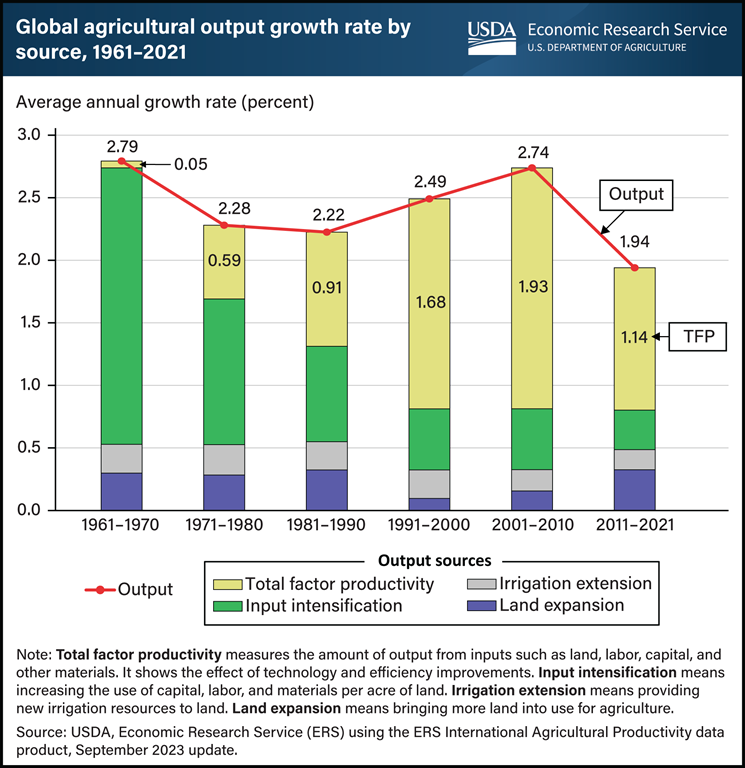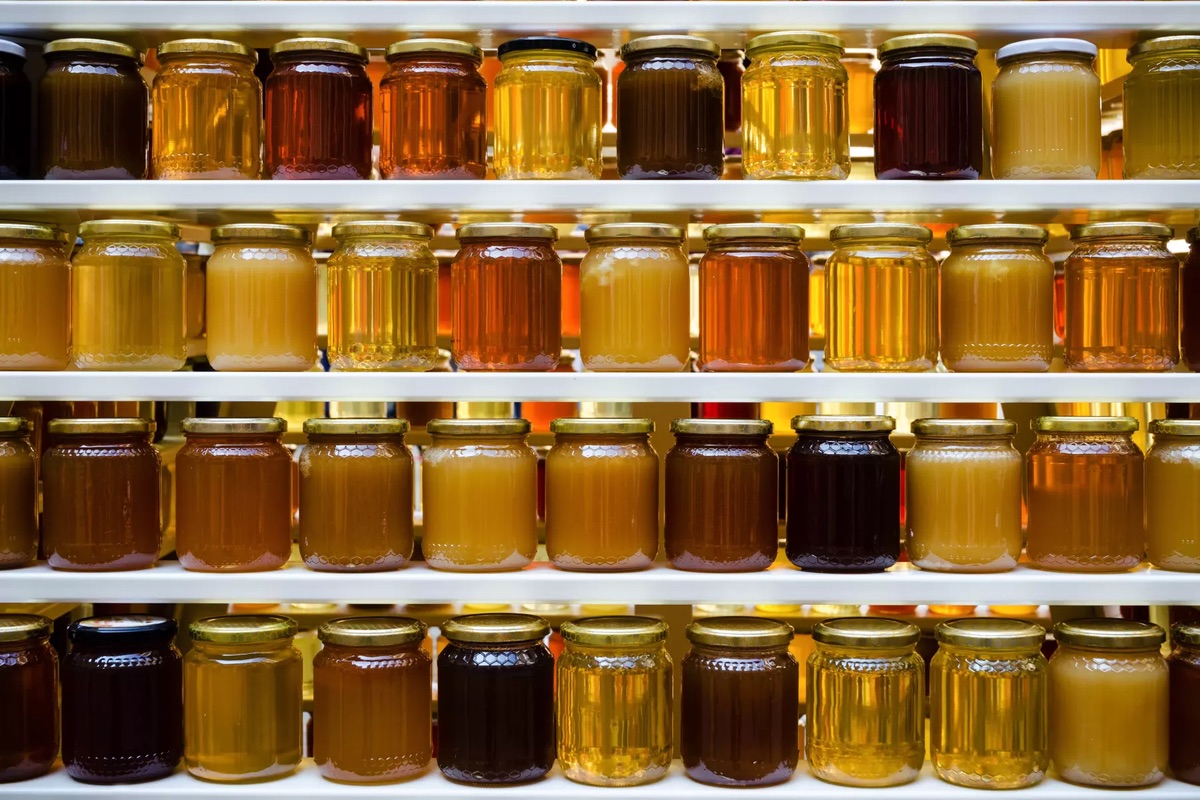Bad news, Optimists. Latest data from USDA Agricultural Research Service shows a steep drop in agricultural output growth in 2011–2021. That despite an increase in land converted to agriculture.

Hard times are coming, we just can’t be sure about when.
